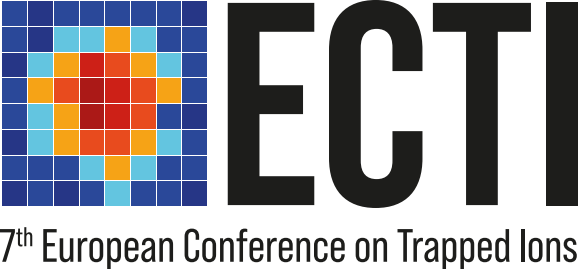Sprecher
Beschreibung
Highly charged ions (HCI) offer promising candidate species for searches of physics beyond the Standard Model and next-generation optical atomic clocks. In the CryPTEx-SC experiment, we store HCIs in a cryogenic linear Paul trap that simultaneously functions as a superconducting radio-frequency resonator filtering the trap drive [1].
The HCIs are produced in a compact electron beam ion trap and then injected into and sympathetically cooled by a Coulomb crystal of Be
We present Be
Using a magnetically-sensitive hyperfine transition of Be
[1] Stark et al., Rev. Sci. Instrum. 92, 083203 (2021)
[2] Dijck et al., arXiv:2306.01670, to appear in Rev. Sci. Instrum. (2023)

